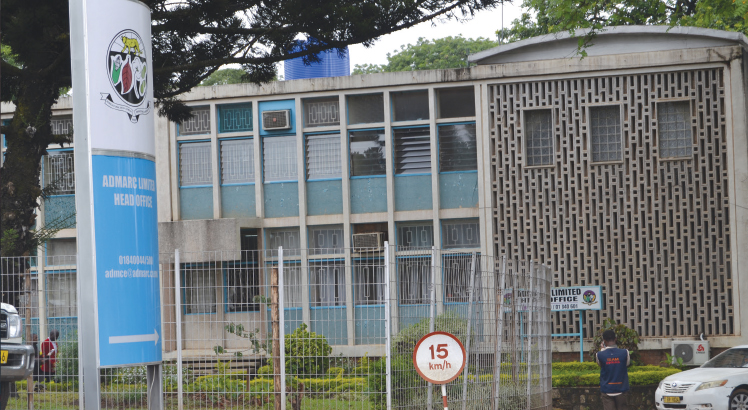Admarc set to recruit 2 000 new staff
Barely a fortnight after firing its entire staff, State produce trader Agricultural Development and Marketing Corporation (Admarc) plans to recruit about 2 000 new employees as part of its restructuring process.
A vacancy advert published on Saturday showed that Admarc is planning to hire a chief executive officer alongside directors of operations, finance and corporate affairs.
In an interview yesterday, Admarc board chairperson Zachary Kasomekera confirmed the planned recruitment and said the parastatal will also advertise for various positions.
Previously, Admarc’s top position was titled general manager, but in the advert, the parastatal plans to hire a chief executive officer.
Kasomekera said: “Those hired will start working as soon as we recruit them. We had more than 3 000 employees, but as part of the restructuring process we are hiring less than 2 000 employees.

“We are in the second phase of the restructuring process; the first phase was the retrenchment process. Although we are not as fast as we would want, we are still moving forward with the restructuring. The board is also getting good political will and that gives us confidence.”
He said to improve service delivery, Admarc will also venture into value addition and export of processed goods so that in the long run, it may be one of the entities bringing forex in the country.
Commenting on the development, corporate strategy expert James Kamwachale Khomba described the development as good news and said he hoped government has resolved all the issues that crippled the company for many years.
He said: “Government needed to expedite the [Admarc restructuring] process because Malawi is an agriculture economy and we cannot afford to have such an entity closed down.
“It’s not an issue of just reopening the company, we are looking at the effectiveness of the organisation to serve Malawians in the best manner possible.”
But Khomba, a professor of finance and corporate strategy at the Malawi University of Science and Technology, expressed worry over the proliferation of unscrupulous traders he said are duping farmers by procuring their produce at cheap prices.
“This is a manifestation that Admarc plays a pivotal role in determining the price of commodities. Now that it is coming back to serve the nation, we are expecting the best from the new staff,” he said.
Consumers Association of Malawi executive director John Kapito is on record as having said that the absence of Admarc led to a rise in maize prices in most of the markets, with a kilogramme (kg) of the grain which used to cost K146 in 2021, now selling at about K500 per kg or K25 000 per 50 kg bag, way above the five-year averages for the post-harvest period.
On January 31, Admarc acting general manager Ethel Zilirakhasu issued a letter to staff indicating the parastatal was implementing a 100 percent retrenchment of its 4 000 plus staff effective February 1 2023.
But the communication further said the company will give a three-month employment contract effective February 1 2023 to some employees, especially those that worked as skeleton staff to help with the transition while the company will be completing other processes.
Admarc is one of the parastatals that have been struggling financially and has over the years failed to serve Malawians as per its mandate as a produce price stabiliser and ready market for farmers. Admarc has also failed to perform its social function as government’s food security apparatus.
In September 2022, former minister of Agriculture Lobin Lowe closed Admarc and sent its entire staff on paid leave to pave the way for restructuring.
The ministry stated that its decision was influenced by among others, the conflict between Admarc board of directors and management which led to poor governance, abuse of company finances and theft by some employees.
It also cited low productivity and corruption perpetrated by some employees and unprocedural recruitment that led to excess workforce as other factors frustrating the company’s growth.





